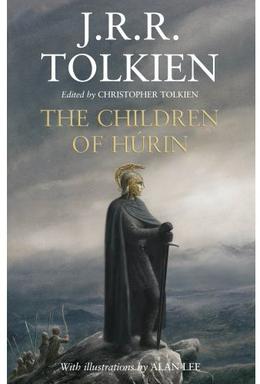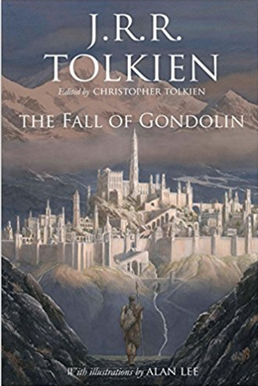Yup, it's time for another one of these! I had planned on doing two articles like I had in previous years, but I definitely did not read as much this year. (I mostly blame the Nintendo Switch I picked up last December.) Still, I did read some pretty interesting stuff, and I ended up having a lot to say about these books. This one is a long one, but here are all the books I read in 2024.
Single & Single (1999)
by John le Carré
As usual, I ended up getting some more books for Christmas, and since my family knows that I've recently become a fan of le Carré, I got this one last Christmas. A much later book than the ones I've read so far, it focuses on the 90s instead of the 60s or 70s, but otherwise, it's another decent spy thriller, albeit a sloppy one.
Tiger Single and his son Oliver run the business firm Single & Single, initially dedicated to being a bridge between Soviet Russia and the Western World. However, with the collapse of the Soviet Union in 1991, thinks were looking bleak, but as the decade went on, Single & Single were doing unusually well. When Oliver decided to look into the details, he discovered his father was now fronting a money laundering scheme for his former Soviet partners. Upon this revelation, Oliver then goes to the British Customs and Excise department to let them know what's going on, eventually becoming a spy for them.
However, the story actually starts a few years later, in the late 90s, where Oliver has been in hiding, living a second life as a children's magician act. When he learns about a strange murder in Turkey and sees a massive donation to his child's bank trust, he realizes things have turned for the worst. His leader at Customs Excise reaches out to him and sends him on a mission to go find his now missing father, get to the bottom of what Single & Single were really doing, and catch the criminals responsible.
While this seems relatively straight-forward as a spy thriller story, le Carré's writing obfuscates a lot of it with extended flashbacks filled with bizarre half-descriptions. We spend a lot of time with Oliver first joining the company and being named a partner, as well as getting to know the backgrounds and ambitions of all the Soviet partners. And then, once the stakes get set and things jump back to the present for espionage sections, Oliver ends up being a strange character to follow. Sometimes he's brilliant and confident, but other times he's led along by a figurative rope and just acting out motions because he's told to. His motivation is focused on protecting his wife and little daughter from the corruption of the company, but much time is spent with his various affairs over the years, including a new one that develops as the story goes on. He feels like an inconsistent cypher, being whatever the scene needs him to be as he drifts through the plot.
Reading this has been strange, especially when compared to le Carré's work in the 60s, where he is so much more terse and direct. Sure, those older books a lot of details to track, but they would be put in their places to complete a satisfying puzzle. Here, with Single & Single, there's a lot more figurative language to sort through, and there were even times where I wasn't sure who was in a scene or not, especially as Oliver lapses in and out of flashbacks. While the pieces did eventually come together, it wasn't as satisfying this time, as there was a lot of fluff that I felt I had to take seriously because you never know what will be important in the future when it comes to reading a thriller. That being said, I don't think it's a bad book, and it is interesting to see this author, best known for Cold War stories, take a stab at what a post-Soviet thriller would be like, focusing much more on the corruption of systems and economics. It's not as recommendable as his earlier works, but I enjoyed it well enough.
The Great Tales of Middle-Earth (2007,2017,2018)The Karla Trilogy (1974, 1977, 1979)
by John le Carré
Guess what? More Christmas books! I actually got these three in another three-in-one collection, so I was able to read through this trilogy one after the other. The 70s were definitely a different style for le Carré, as we see the author start to flex his figurative language with these ones. Still, they remain a fascinating trilogy, exploring the seedy, dry, tedious underbelly of the spying world as the Cold War lingered on.
The first is Tinker Tailor Soldier Spy, which is mainly focused on reestablishing George Smiley as the main character and introducing a new rival named Karla, who is the head of the Russian's spy organization, called Moscow Centre. After a shift in power at the Circus, Smiley is forced to retire. However, not long after, the British government comes to him on the side, telling him of the possibility of a mole in the Circus. From there, Smiley launches into an investigation of a handful of incidents, seeking to identify the double-agent who has entrenched himself in the British spy service. After having seen the movie and the TV series, reading this was interesting, as it gave me a lot more detail to work with, helping me piece the flow together better. The TV series is pretty faithful, but the movie changed a lot of the details and skimming over others. Still, both are pretty satisfying as adaptations go.
One thing I did pick up on reading the book was a major theme of England's loss of relevance to the Cold War's global political scene. Many of the characters Smiley interacts with are often reminiscent of what England was like during World War 2, full of confidence as a major player on the world stage. However, as their efforts in fight communism have trudged on, there's a recognition that England is fading underneath the rise of the superpowers: the United States and Soviet Russia. In fact, Karla's whole scheme in this book outright proves England's irrelevance, as the Circus is used as a tool to get access to their true goal: American intelligence. This leaves many of the characters in an encroaching malaise, as they each struggle with their obsolescence in their own way. Still, it was a pretty good read, despite knowing the end from the beginning, as it was interesting to see how Smiley put the pieces together from a broad bank of information to draw from. And it does a good job of establishing the new status quo for the books to follow.
The Honourable Schoolboy (using the British spelling here) was a different experience, as I was going in completely blind. The TV series skipped this one, as it deal a lot with southeast Asia, and they figured they didn't have the budget to pull that off. Picking up right where Tinker Tailor Soldier Spy left off, George Smiley is now in charge of the Circus and is keen on cleaning up the mess the mole had left behind in an effort to find more info on Karla and his operations. In the middle of this, one of Smiley's agents, Jerry Westerby (who did show up in the first book) seems to have picked up on a possible money laundering scheme Karla has set up in Hong Kong. The money went to a Chinese business man named Drake Ko so that he could extract his brother Nelson Ko out of China and into Russian control to get intel on China's operations. However, the Circus thinks they can get their hands on him instead, which would be a great boon for them.This book is the longest of the three, and it's not even close. This is largely because Le Carré really wanted to convey the atmosphere of 70s Hong Kong, resulting in long passages where characters don't do much but soak in the scene. Later, Jerry ends up in south-east Asia, near the fighting of the Vietnam War, allowing the author to go on about the terrible conditions of the people living there as a consequence of the violence. There's also a lot more internal politics going on, as the Circus desperately tries to justify its existence to the British government, as well as manage their relationship with their American counterparts, who have their own agenda with the Ko brothers. Overall, there really is a lot going on, so it really takes a while for the story to get where it's going.
Thinking about it, it ends up being like a weird blend of The Spy Who Came In From The Cold and The Looking Glass War, in that it focuses a lot on how the cold, calculating nature of British spies seems unsuited for some folks who either want glory or romance, and how a faithful spy ends up becoming a victim of circumstances outside of his control. Jerry Westerby is the one on the ground for most of this book, and while he's not a bad character, it's also hard not to pity him sometimes. Presented against the backdrop of the Vietnam War, it's hard not feel like the whole book is an argument about the pointless gain of hard-fought and measured effort when it's all just going to fall apart anyway. While I don't think this was a bad book, per se, but it definitely felt like a downer after how well the first book had set things up. I might have liked the book better if it wasn't such a slog.
Which brings us to the last book of the trilogy, Smiley's People. Smiley is retired (again), but gets pulled out of mothballs when an agent he was in charge of in the past suddenly turns up dead. The folks in the British government are nervous about a scandal, so they recruit Smiley to look over the situation and make sure there isn't anything that they can't quietly sweep under the rug. However, it turns out this agent has links to evidence that brings Smiley back to his rivalry with Karla, this time with an advantage he didn't have before.






No comments:
Post a Comment